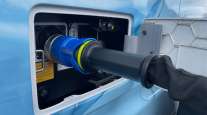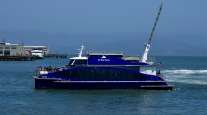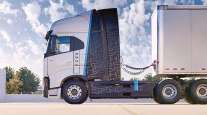Senior Reporter
Calif. Approves Plan for Trucks to be Electric Powered by 2050
California environmental regulators have approved an update to the state’s long-term greenhouse-gas emissions plan that calls on the trucking industry to transition from diesel to mostly electric and hydrogen-powered vehicles by 2050.
The state’s 2006 Global Warming Solutions Act requires California to reduce greenhouse-gas emissions to 1990 levels by 2020 and maintain and continue emissions reductions 80% below 1990 levels by 2050.
For freight transportation that will mean “moving goods more efficiently and with zero or near-zero emissions; providing acceptable velocity and expanded system capacity; and optimizing movement of freight between modes, while integrating with the national and international freight transportation system,” the voluminous document said.
The updated plan, approved by the California Air Resources Board on May 22, addresses climate-change issues ranging from water conservation and solar energy to economic development and black carbon emission reductions.
“This is a major milestone,” Mary Nichols, CARB’s board chairman, said prior to calling for the plan to be approved. “It’s a plan that’s a lot more than emissions limitations.”
For the transportation sector, the plan calls for some gradual but radical changes.
“Ultimately, achieving our goals will require widespread use of low-carbon electricity and hydrogen as transportation fuels for battery electric and fuel cell vehicles, and low-carbon, renewable fuels where internal combustion engines cannot feasibly be replaced,” the so-called “scoping plan” said.




